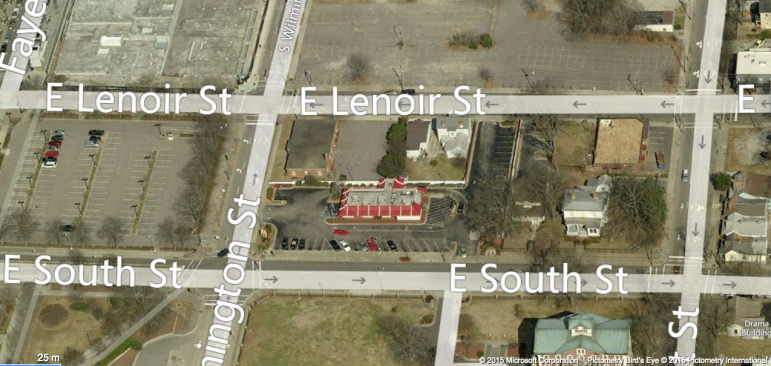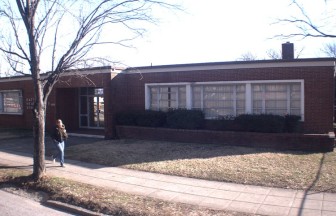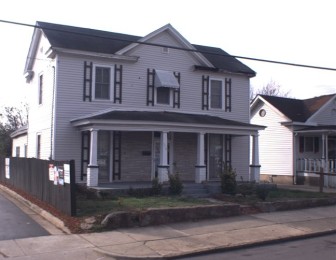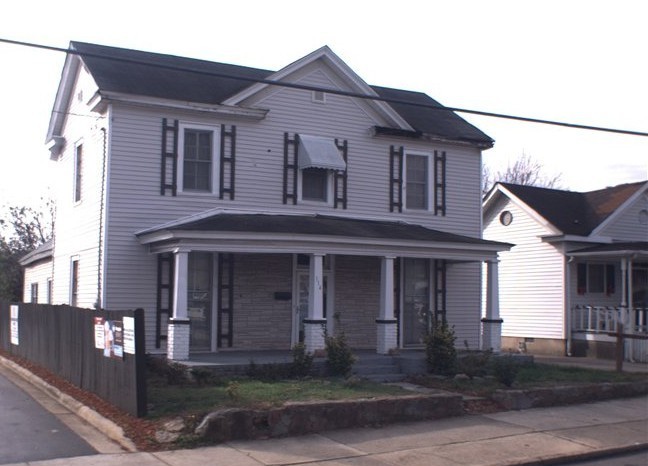The planning commission committee of the whole held an item last Tuesday that proposed the rezoning of a property with statewide historical significance. The proposed rezoning has significant support but would set a precedent and allow for “open season on our historic districts,” according to planning commission chairman Steven Schuster.
The rezoning case — Z-42-14 — concerns a property that contains two buildings of historical significance, one of which belongs to the General Baptist State Convention. The buildings are from the early 20th century and are at the intersection of E. Lenoir Street and S. Wilmington Street.

Bing Maps
The site in question is located behind the McDonalds
The rezoning would allow for increased residential density and the removal of the historic overlay district in order to build an upscale hotel that would also serve as the new General Baptist State Convention headquarters. An additional condition specified that the two historic buildings would be moved to an off-site location.
Speaking at the committee meeting, Reverend Haywood Gray of General Baptist State Convention told planning commission members that the organization supported the rezoning because it would allow for “modern space [that] we need to move boldly in the 21st century.”
“We don’t have the capital to do this and we think this is a great opportunity for us and for the people we serve,” Gray said.

Wake County
General Baptist State Convention. owns this existing office building on Wilmington Street
Shaw University, located near the property, added its support, indicating that the University planned to build a partnership with the organization building the hotel to add to the University’s business program, which would include hospitality work.
The Central CAC also voted unanimously to recommend approval of the rezoning.
The Raleigh historic development commission came out against the rezoning, with one member telling planning commissioners that the applicant needed to go through the process of securing a certificate of appropriateness.
“We think historic districts are important for the development of downtown,” said Don Davis of RHDC.
Jenny Harper, a resident of an adjoining neighborhood, talked about similar concerns, saying that the project represented the “slow creep of downtown” and that if this were to be approved, “there will always be a justifiable project to demolish historic development.”
Planning commission members were mostly undecided about the case, noting that it had a great deal of support within the community but that it would set a precedent that would allow for the repeal of historic districts for the density of downtown developments.
Steven Schuster said he would not recommend approval of the rezoning. “I like this project. I like the use. I like the partnerships. At the same time, it causes me considerable concern.”

Wake County
This property on Lenoir Street was built in 1909
Mitch Fluhrer was the lone planning commission member that said he was recommending approval. He said in a phone interview that sometimes new historic overlay districts undergo modifications and that the support from the General Baptist State Convention and Shaw University was a factor in his decision.
“I thought the developers did a really good job in bringing together different parts of the community,” he said.
